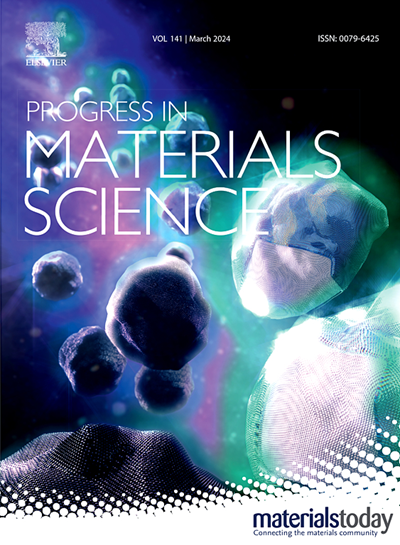An invisible dartboard: Commercialization targets for metal and anode-free batteries
IF 40
1区 材料科学
Q1 MATERIALS SCIENCE, MULTIDISCIPLINARY
引用次数: 0
Abstract
Alkali metal batteries (MBs) and anode-free batteries (AFBs) can offer high energy density and simple construction for future electric vehicles. The short lifespan of these batteries is regularly labelled as a significant commercialization barrier, however no clear targets have been defined. In this Snapshot Review, we determine lifespan and other targets for Li- and Na-MBs and AFBs using NMC Li-ion batteries (Li-IBs) as a benchmark. AFBs require lifespans over 1400 cycles to reach Li-IB parity, but currently last only a few hundred cycles. MBs are closer to parity, though large manufacturing challenges remain. Additionally, we assess other requirements including thermal operating ranges, fast charging thresholds, and fabrication demands which must be addressed in MB and AFB research to better match electric vehicle operation. These clear targets will align our efforts to bring these next-generation technologies out of the lab and into mainstream application.
看不见的飞镖:金属和无阳极电池的商业化目标
碱金属电池(mb)和无阳极电池(afb)可以为未来的电动汽车提供高能量密度和简单的结构。这些电池的短寿命通常被认为是一个重大的商业化障碍,但目前还没有明确的目标。在这篇快照评论中,我们以NMC锂离子电池(Li- ibs)为基准,确定了Li- mb和na - mb和afb的寿命和其他目标。afb需要超过1400次循环才能达到Li-IB平价,但目前只能持续几百次循环。MBs更接近平价,尽管大型制造挑战依然存在。此外,我们还评估了其他要求,包括热工作范围、快速充电阈值和制造要求,这些要求必须在MB和AFB研究中得到解决,以更好地匹配电动汽车的运行。这些明确的目标将使我们努力使这些下一代技术走出实验室并进入主流应用。
本文章由计算机程序翻译,如有差异,请以英文原文为准。
求助全文
约1分钟内获得全文
求助全文
来源期刊

Progress in Materials Science
工程技术-材料科学:综合
CiteScore
59.60
自引率
0.80%
发文量
101
审稿时长
11.4 months
期刊介绍:
Progress in Materials Science is a journal that publishes authoritative and critical reviews of recent advances in the science of materials. The focus of the journal is on the fundamental aspects of materials science, particularly those concerning microstructure and nanostructure and their relationship to properties. Emphasis is also placed on the thermodynamics, kinetics, mechanisms, and modeling of processes within materials, as well as the understanding of material properties in engineering and other applications.
The journal welcomes reviews from authors who are active leaders in the field of materials science and have a strong scientific track record. Materials of interest include metallic, ceramic, polymeric, biological, medical, and composite materials in all forms.
Manuscripts submitted to Progress in Materials Science are generally longer than those found in other research journals. While the focus is on invited reviews, interested authors may submit a proposal for consideration. Non-invited manuscripts are required to be preceded by the submission of a proposal. Authors publishing in Progress in Materials Science have the option to publish their research via subscription or open access. Open access publication requires the author or research funder to meet a publication fee (APC).
Abstracting and indexing services for Progress in Materials Science include Current Contents, Science Citation Index Expanded, Materials Science Citation Index, Chemical Abstracts, Engineering Index, INSPEC, and Scopus.
 求助内容:
求助内容: 应助结果提醒方式:
应助结果提醒方式:


